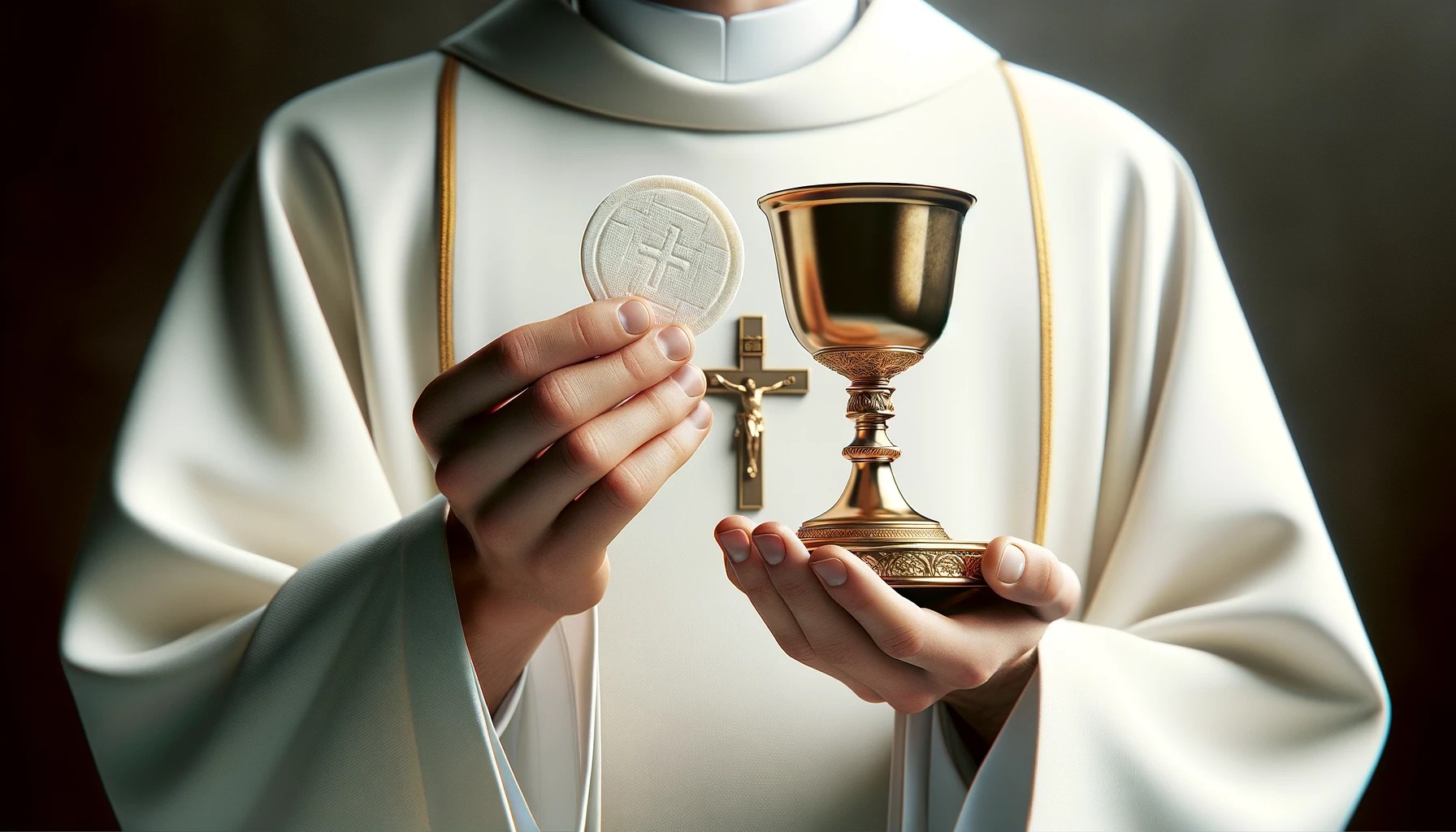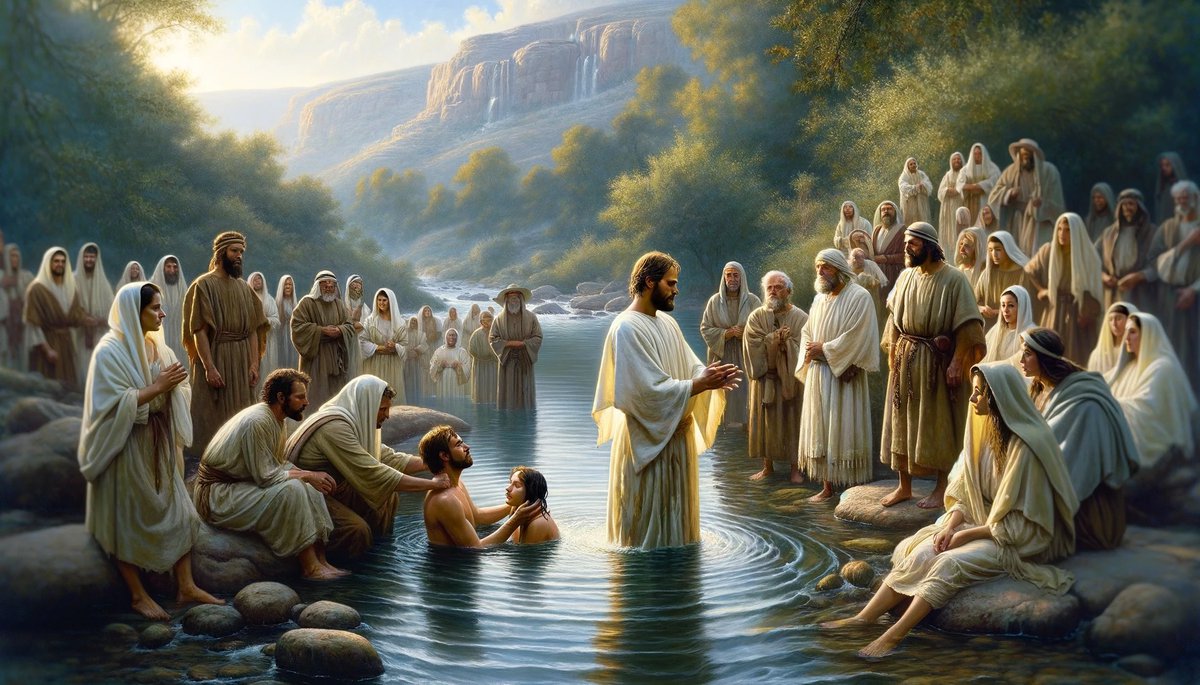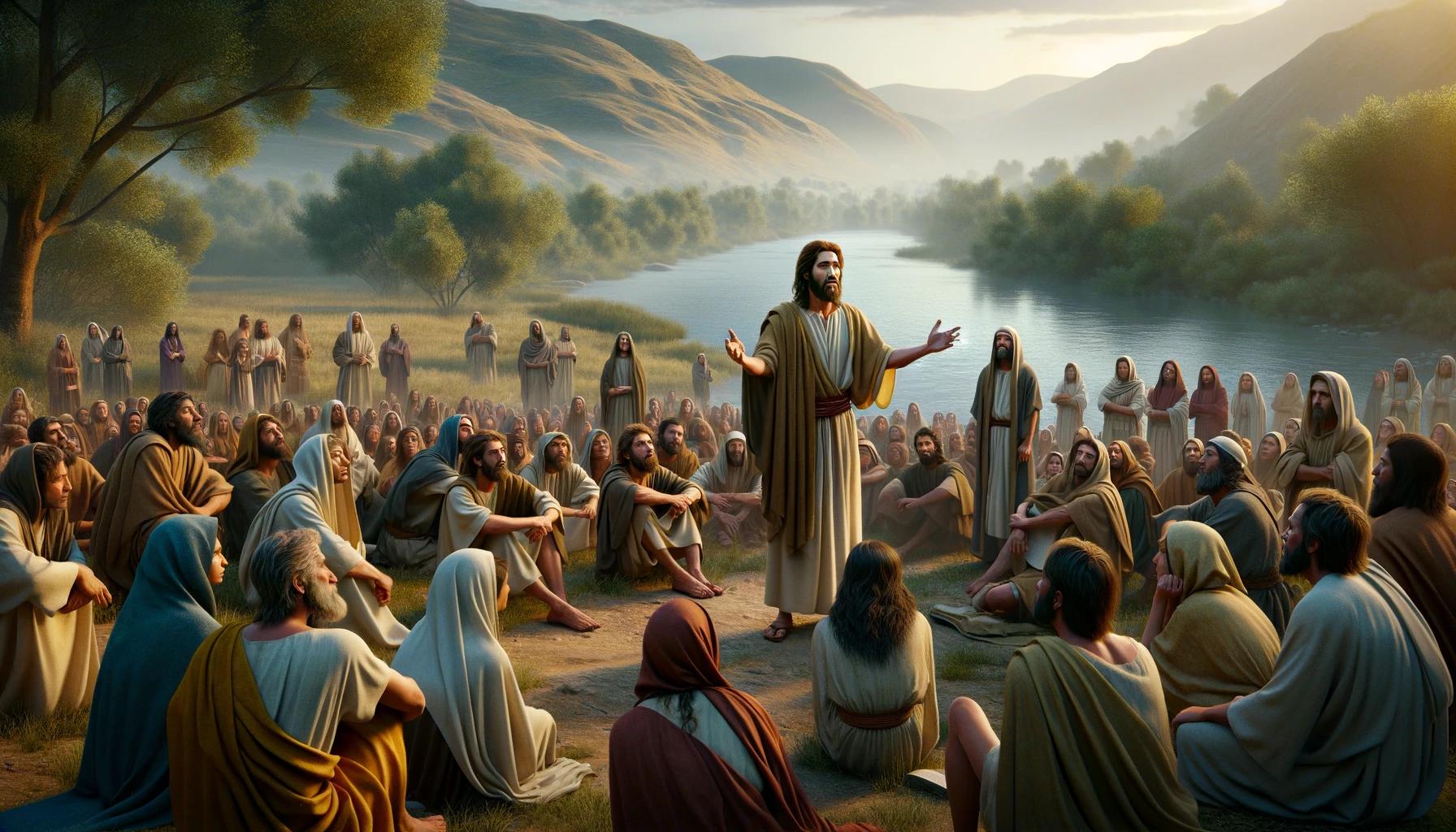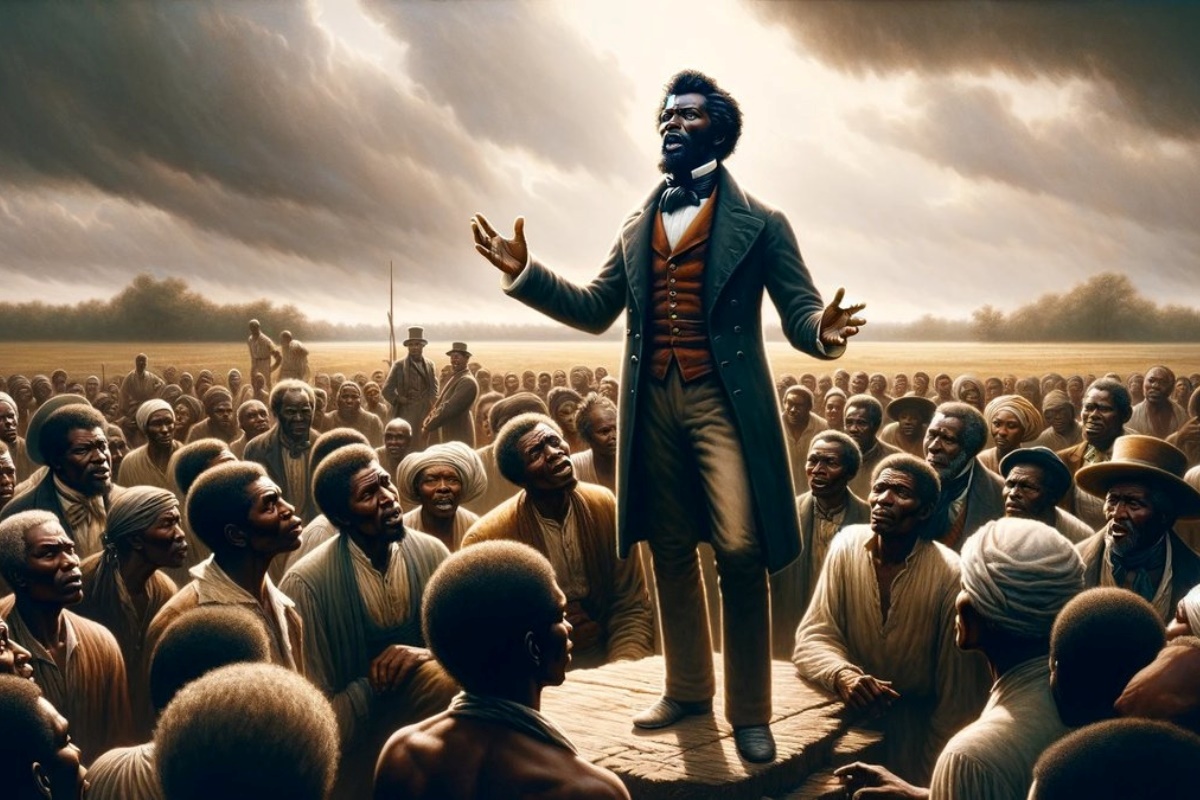Home>Theology and Spirituality>What Happened To John The Baptist?
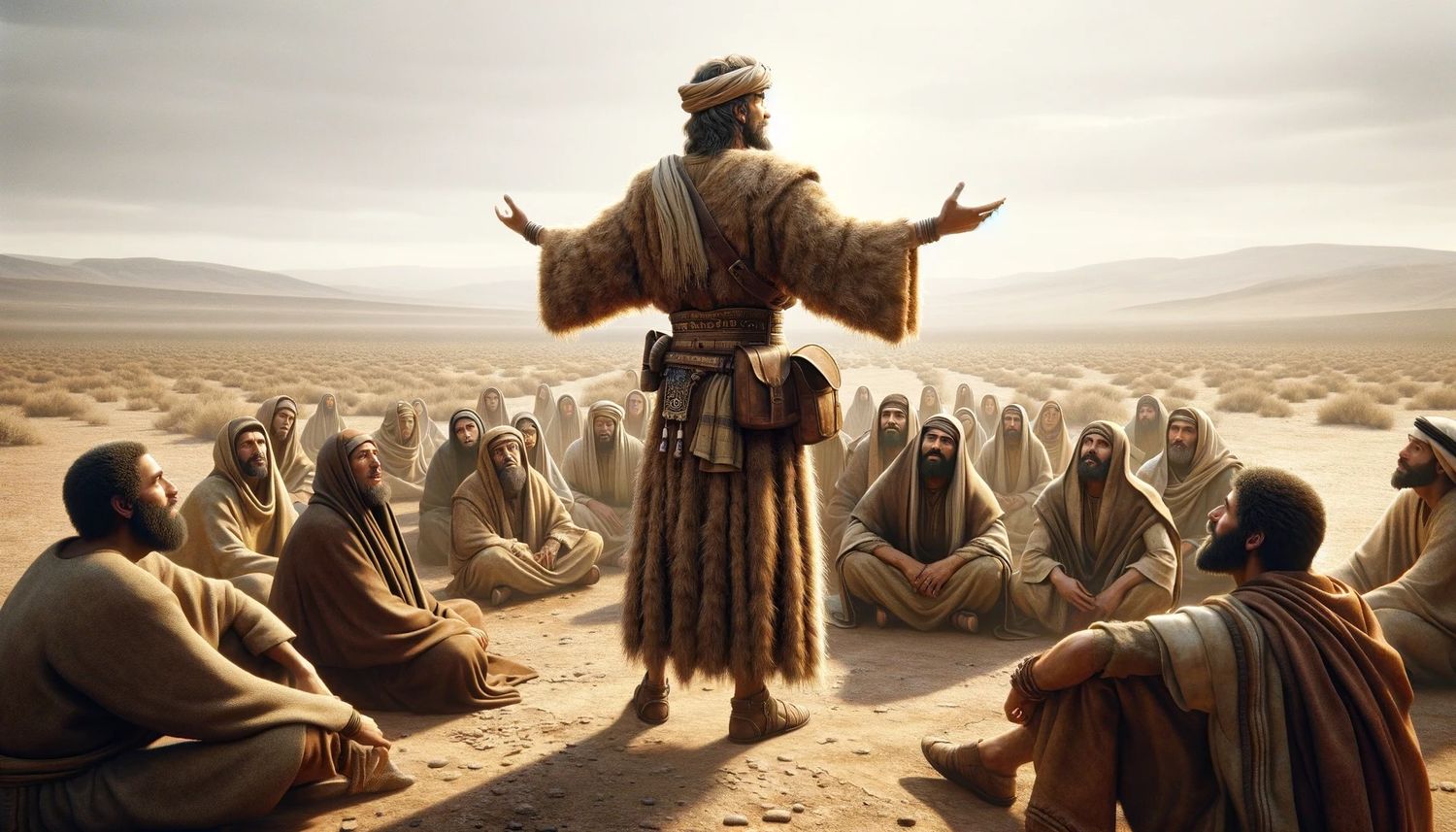

Theology and Spirituality
What Happened To John The Baptist?
Published: February 20, 2024
Ericka Andersen, an editor at Christian.net, expertly merges digital strategy with content creation, focusing on faith and societal issues. Her communication skills enhance the platform's engaging narratives, fostering meaningful dialogue on belief's impact on society.
Discover the fate of John the Baptist and explore the theological significance of his life and legacy. Delve into the spirituality of his story and its enduring impact.
(Many of the links in this article redirect to a specific reviewed product. Your purchase of these products through affiliate links helps to generate commission for Christian.net, at no extra cost. Learn more)
Table of Contents
Introduction
John the Baptist, a pivotal figure in Christian history, is known for his profound impact on the ministry of Jesus Christ. His life, teachings, and ultimate fate have left an indelible mark on the spiritual landscape. As we delve into the story of John the Baptist, we uncover a narrative of unwavering faith, courage, and a resolute commitment to his divine calling.
The enigmatic figure of John the Baptist emerges from the pages of the New Testament, specifically the Gospels of Matthew, Mark, Luke, and John. His birth, marked by divine intervention and prophetic significance, set the stage for a life dedicated to preparing the way for the Messiah. John's lineage, as the son of Zechariah, a priest, and Elizabeth, a relative of Mary, the mother of Jesus, underscores his familial connection to the unfolding story of salvation.
John's significance extends beyond his familial ties, as his ministry in the wilderness of Judea captured the attention of multitudes. Clad in a garment of camel's hair and subsisting on a diet of locusts and wild honey, John embodied a prophetic fervor that resonated with the masses. His impassioned calls for repentance and baptism symbolized a spiritual awakening, heralding the imminent arrival of the long-awaited Savior.
The impact of John's ministry reverberated throughout the region, drawing crowds from various walks of life. His compelling message of repentance and the impending arrival of the Messiah stirred the hearts of those who sought spiritual renewal. Moreover, his baptismal rites symbolized a profound commitment to turning away from sin and embracing a life of righteousness.
As we embark on a journey through the life and legacy of John the Baptist, we are compelled to explore the circumstances that led to his imprisonment and, ultimately, his tragic demise. The interplay of political intrigue, moral conviction, and unwavering faith paints a poignant portrait of a man who fearlessly stood for truth in the face of adversity.
In the subsequent sections, we will delve into the intricacies of John's ministry, the events leading to his imprisonment, and the enduring legacy he left behind. Through this exploration, we gain a deeper understanding of the profound impact of John the Baptist on the spiritual tapestry of Christianity.
Read more: What Was John The Baptist’s Baptism For?
The Life of John the Baptist
John the Baptist's life is shrouded in divine providence and prophetic significance. His birth, foretold by the angel Gabriel to his father, Zechariah, and his mother, Elizabeth, marked the dawning of a new era in the unfolding narrative of salvation. Born into a lineage of priests, John's familial connection to the priestly tradition imbued his life with a sense of sacred purpose from its inception.
The circumstances surrounding John's birth were nothing short of miraculous. Elizabeth, his mother, had been barren, and both she and Zechariah were advanced in years. The angelic proclamation of John's impending birth, despite these seemingly insurmountable obstacles, underscored the divine orchestration of his arrival. His very name, John, meaning "God is gracious," encapsulated the profound sense of blessing and divine favor that accompanied his existence.
As John matured, he retreated to the wilderness, where he embraced a life of asceticism and contemplation. Clad in a garment of camel's hair and sustained by a diet of locusts and wild honey, John's austere lifestyle mirrored the prophetic fervor that burned within him. His solitary sojourn in the wilderness served as a crucible for the refinement of his spirit and the deepening of his connection to the divine.
John's ministry, characterized by a clarion call to repentance and baptism, resonated with a diverse array of individuals. His impassioned exhortations reverberated through the Judean wilderness, drawing crowds from various walks of life. The sincerity and urgency with which he delivered his message captured the hearts of those who longed for spiritual renewal and a restoration of their relationship with the divine.
The baptismal rites administered by John symbolized a profound commitment to turning away from sin and embracing a life of righteousness. This act of immersion in the waters of the Jordan River signified a symbolic cleansing and a reorientation toward a renewed spiritual journey. The transformative power of John's baptismal ministry lay in its ability to awaken a collective consciousness to the imminent arrival of the Messiah and the necessity of preparing one's heart to receive him.
In essence, the life of John the Baptist epitomized unwavering devotion to his divine calling, an unyielding commitment to righteousness, and an unrelenting pursuit of spiritual truth. His prophetic mantle, coupled with his ascetic lifestyle and compelling message, set the stage for the profound impact he would have on the spiritual landscape of his time and for generations to come.
John's Ministry and Message
John the Baptist's ministry and message reverberated throughout the Judean wilderness, drawing multitudes from near and far. Clad in a garment of camel's hair and sustained by a diet of locusts and wild honey, John's austere lifestyle mirrored the prophetic fervor that burned within him. His solitary sojourn in the wilderness served as a crucible for the refinement of his spirit and the deepening of his connection to the divine.
The heart of John's ministry lay in his impassioned call to repentance and baptism. His resonant voice echoed through the rugged terrain, compelling listeners to turn away from their transgressions and embrace a life of righteousness. The urgency with which he delivered his message stirred the hearts of those who longed for spiritual renewal and a restoration of their relationship with the divine.
John's baptismal rites symbolized a profound commitment to spiritual purification and a reorientation toward a renewed journey of faith. The act of immersion in the waters of the Jordan River signified a symbolic cleansing, a shedding of the old self, and a readiness to embrace a transformed existence. This transformative ritual served as a powerful catalyst for awakening a collective consciousness to the imminent arrival of the Messiah and the necessity of preparing one's heart to receive him.
Moreover, John's ministry transcended societal boundaries, drawing individuals from diverse backgrounds. His message of repentance and spiritual renewal resonated with both the common people and the religious elite, transcending social stratifications. The sincerity and authenticity with which he delivered his message captivated the hearts of those who sought a deeper connection to the divine and a restoration of spiritual wholeness.
In essence, John the Baptist's ministry and message embodied a profound call to spiritual awakening and a restoration of the human spirit. His unwavering commitment to proclaiming the imminent arrival of the Messiah and preparing the hearts of the people left an indelible mark on the spiritual landscape of his time. The enduring resonance of his message continues to echo through the annals of history, beckoning humanity to embrace a life of repentance, righteousness, and spiritual renewal.
Imprisonment and Death
The zenith of John the Baptist's ministry was marked by a tumultuous turn of events that would ultimately lead to his imprisonment and tragic demise. His unwavering commitment to truth and righteousness, coupled with his fearless denunciation of moral transgressions, incurred the ire of Herod Antipas, the ruler of Galilee and Perea.
The catalyst for John's imprisonment stemmed from his vocal condemnation of Herod's illicit union with Herodias, the wife of his brother, Philip. John fearlessly confronted Herod, denouncing the immoral nature of his relationship and the violation of divine law. This bold stance against the ruling authority, driven by an unyielding commitment to moral integrity, sealed John's fate.
Herodias, goaded by her daughter Salome's dance, seized the opportune moment to exact retribution upon John. Herod, swayed by Salome's performance, made a rash vow to grant her any request. Prompted by her mother, Salome demanded the head of John the Baptist on a platter. Despite his inner turmoil, Herod, bound by his oath and the fear of losing face in front of his guests, reluctantly acquiesced to Salome's gruesome request.
The tragic denouement of John's life unfolded within the confines of Herod's prison. His unwavering faith and steadfast commitment to truth remained unshaken, even in the face of impending doom. The darkness of the prison walls could not extinguish the radiant fervor of his spirit, nor could the specter of death diminish the resolute conviction that defined his existence.
John the Baptist's martyrdom stands as a testament to the unyielding nature of his faith and the indomitable spirit with which he upheld divine truth. His willingness to endure persecution and martyrdom rather than compromise his principles embodies the epitome of spiritual courage and unwavering commitment to righteousness.
The tragic demise of John the Baptist reverberated through the corridors of history, leaving an indelible imprint on the collective consciousness of humanity. His unwavering fidelity to truth and righteousness, even unto death, serves as a timeless exemplar of moral fortitude and spiritual resilience. The legacy of John the Baptist, immortalized by his martyrdom, continues to inspire generations to uphold unwavering integrity and unyielding devotion to the divine truth.
Legacy of John the Baptist
The legacy of John the Baptist transcends the confines of his earthly existence, permeating the annals of history with an enduring resonance that continues to captivate hearts and minds. His unwavering commitment to truth, righteousness, and the proclamation of the imminent arrival of the Messiah left an indelible mark on the spiritual landscape of his time and for generations to come.
John's legacy is epitomized by his unyielding devotion to his divine calling, even in the face of persecution and martyrdom. His fearless denunciation of moral transgressions and his steadfast adherence to the principles of righteousness serve as a timeless exemplar of moral fortitude and spiritual resilience. The manner in which he confronted the ruling authorities, unflinchingly upholding the divine law, stands as a testament to his unwavering integrity and unyielding commitment to truth.
Moreover, John's baptismal ministry, symbolizing a profound call to repentance and spiritual renewal, continues to reverberate through the corridors of time. His impassioned exhortations to turn away from sin and embrace a life of righteousness echo through the ages, beckoning humanity to embark on a journey of spiritual awakening and restoration.
The enduring legacy of John the Baptist is further underscored by the profound impact he had on the ministry of Jesus Christ. As the herald of the Messiah, John prepared the hearts of the people for the arrival of the Savior, laying the groundwork for the transformative ministry of Jesus. His pivotal role in heralding the advent of Christ solidifies his legacy as a central figure in the narrative of salvation.
Furthermore, the example set by John the Baptist continues to inspire individuals to uphold unwavering integrity and unyielding devotion to the divine truth. His martyrdom, borne out of an unwavering commitment to righteousness, serves as a timeless beacon of spiritual courage and steadfast faith.
In essence, the legacy of John the Baptist endures as a testament to the transformative power of unwavering faith, the resolute commitment to truth, and the enduring impact of a life dedicated to the divine calling. His influence transcends temporal boundaries, resonating with the human spirit across generations and beckoning humanity to embrace a life of unwavering integrity and unyielding devotion to the divine truth.





